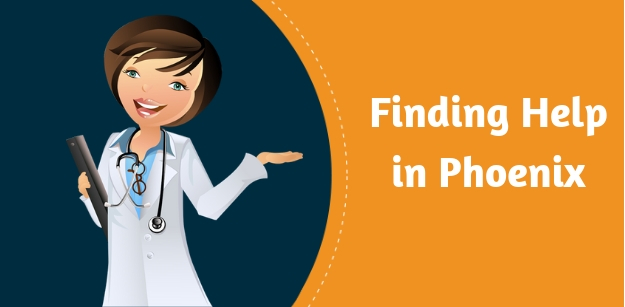With large cities often come large problems. When an area becomes as densely populated as Phoenix, Arizona is, plenty of problems begin. You can point to various things such as crime, business trends, infrastructure, even the extreme heat as potential plagues of society.
However, one of the biggest issues creating in the city is that of the drug trade. That topic of an illegal drug economy is that of another day for the adverse effects of that trade on Phoenix. In particular concern of opioid addictions, the Arizona Department of Health Services offered a real-time running total of the human costs thereof.

Within June 15, 2017 and July 26, 2018, the health services estimated a suspected death toll of 1,535. There was also a count of 9,920 Phoenix residents who were suspected of suffering from opioid-related overdoses. Considering the ratio between these two statistics, that means close to one person in every six died because of this type of drug abuse.
Addictions plague practically every populated area across the country, but where there is opportunity for a criminal enterprise to blossom, there is destruction followed in its wake. Still, there is hope; for as much as there are problems facing people who have found themselves in drug addiction, there are facilities that offer professional help to such individuals. Phoenix is particularly full of options that could offer aid to those pursuing it. Possibilities rang from secular to religious.
Family Services and Other Religious Organizations
Many great Christian churches offer free addiction recovery support groups LDS Family Services — a free family/individual counseling and addiction recovery program — is an option available in close proximity to many people living in the Valley.
Obviously, those not looking for a spiritual approach would do well to fine a different program, given that everything which LDS Family Services does revolves around appealing to God. Their variation on the concept of a 12-step program focuses heavily on the idea that one must admit their weakness as a human being, thus realizing that a higher power is needed to push through and work over personal problems. It has proven to be quite successful, though, so it’s most certainly a worthy option.
Still, there’s no implication that one should favor a specific church-sponsored program over another. If someone is not partial to any religion but seeks spiritual help along with the medical, any church could offer the appropriate help through their support groups. But if that person hypothetically belongs to a specific denomination, it would be most convenient for them to seek help through the group they already belong to. In that case, one will receive assistance that is not only informed by common addiction recovery principles. but it also incorporated into their declared religious beliefs.
Traditional Options
Of course, if someone does not wish to seek religiously-influenced addiction recovery programs, there are always plenty of secular options. Both government-funded and private institutions offer services.
To name an example available to many college-aged students living in the Phoenix Valley, Arizona State University offers counseling services to their students. The prospect of health insurance and paying for counseling out of pocket could bring on all sorts of undesired stress for students, so ASU offers help to their student body as part of tuition fees. It may not be the definitive option for those seeking complete recovery from a drug addiction, but support that stands available 24/7 is not a hard bargain in any case.
It isn’t difficult to find a recovery center in Phoenix. A simple Google search is probably the easiest route one could take, for immediate results could be narrowed down based on customer reviews, location info, as well as links to various health center websites. However, if someone wants more specific help based on their needs, then one can be referred over to the National Helpline. Funded and operated by the Substance Abuse and Mental Health Services Administration it is described as “a free, confidential, 24/7, 365-day-a-year treatment referral and information service (in English and Spanish) for individuals and families facing mental and/or substance use disorders.”
The great thing about this helpline is that you can be referred to a source of aid regardless if they have health insurance. Their mission is to help, and they will do whatever they can to ensure that said task is fulfilled.
Do Whatever It Takes
No matter the specific circumstances facing one’s situation with their path to addiction recovery, there is an ideal solution for them. Get professional help? Join a support group? Seek free, government-funded counseling?
The options are there, but nothing will change until action is taken. Perhaps the results will not immediately come, just as addictions develop over a period of time, time is also required to break free of such problems. When the time and effort is put forth with whatever solution works best, the change will come.